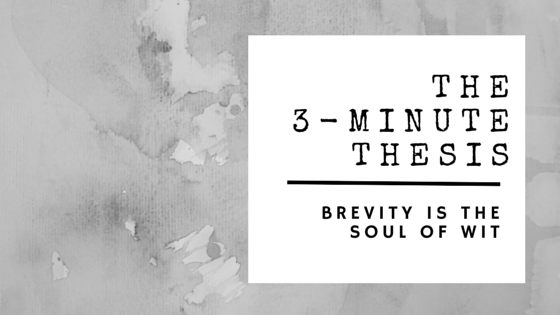Have you ever had that (dreaded?) experience when someone suddenly springs this question on you: “So, what do you do?” I’ve had all different kinds of people ask me this: a colleague, a fellow graduate student, a prospective housemate, my parents. It seems like such a simple question, and yet it has taken me years to feel completely at ease with my answer.
It’s like the years in graduate school (maybe even college and high school?) where we spend our days communicating to people who understand and demand technical scientific language have rendered us incapable of speaking about our work using non-specialist language.
Or maybe it’s just because we’ve never had to learn how to communicate what we do using non-scientific terms. We learn to write essays, formal reports, detailed notes in our lab notebooks, and how to formulate sound research grant proposals. We present our work in seminars in front of people who either work in the same lab or in the same general field. When we’re finally ready to finish up and get our PhDs, we write this massive thesis manuscript documenting everything we’ve done for the past n years (where n=years in grad school). And we also prepare this two-hour presentation for our thesis defense, basically telling our story to an audience of our committee members and other scientists. Nowhere in our current graduate student education are we trained to communicate our research to a non-scientist, or even a scientist working in a completely different field. We are constantly surrounded by people who understand the scientific language we speak.
However, in this age of open access to exponentially increasing amounts of information, it has become more and more important that scientists are able to communicate their works with the public. Not only that, scientific fields are becoming ever more concentrated and specialized, and even communicating to a fellow scientist working in a different field is fraught with difficulties, which hinders development of successful collaborations.
The University of Queensland (UQ) in Australia developed the Three Minute Thesis (3MT®), an annual competition where PhD students are invited to talk about their research projects to an audience in three minutes or less. You can see a video of the 2014 UQ 3MT® winner, Megan Rossi:
https://vimeo.com/107775313
According to their website, UQ developed this exercise to
”cultivate students’ academic, presentation, and research communication skills. The competition supports their capacity to effectively explain their research in three minutes, in a language appropriate to a non-specialist audience.”
This competition was developed in the University of Queensland in 2008, and since then has been held annually and received worldwide recognition. There are currently numerous local competitions that are now held in >200 universities throughout the world, including more than 40 universities in the United States (for a complete list of schools hosting 3MT competitions, click here).
This exercise, whether in competition form or not, should be an essential part of graduate school education, as important as the grant writing class most graduate students probably attended. And no, I do not think this is the same as “dumbing down” science; rather, I think it is using language appropriate to the people involved in the communication process (i.e. speaker and listener). I believe that scientific communication should fit not only the message we are trying to relate, but also the receiver of the message because communication is successful only when the listener has understood what we are trying to say.
This whole blog post has been largely based on personal experiences, but is this still the experience of a large part of the graduate student community? Do you think you can fit your thesis in three minutes? Would you want to?
“Brevity is the soul of wit…Therefore I will be brief” – words spoken by Polonius in Shakespeare’s Hamlet. I believe that if you truly understand something, you need fewer (and simpler!) words to explain it.
If you want to learn more about 3MT® or watch more videos of winners, here is the link: http://threeminutethesis.org/index.html
